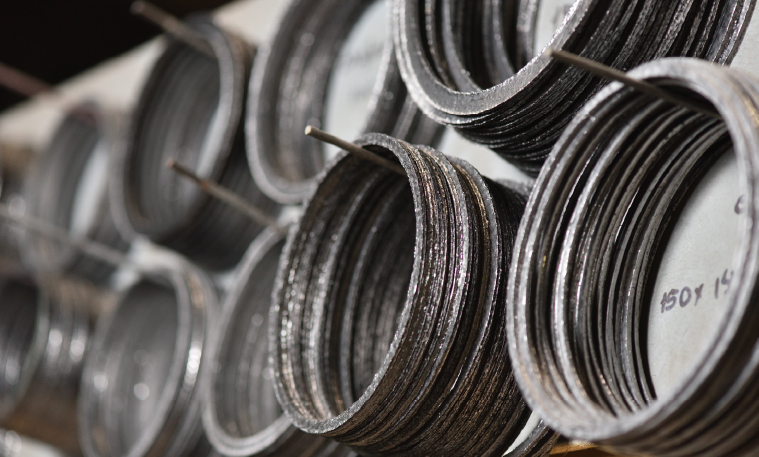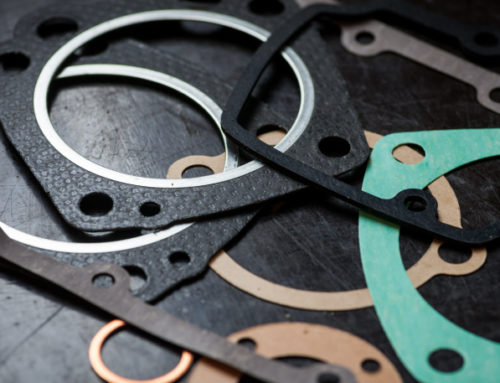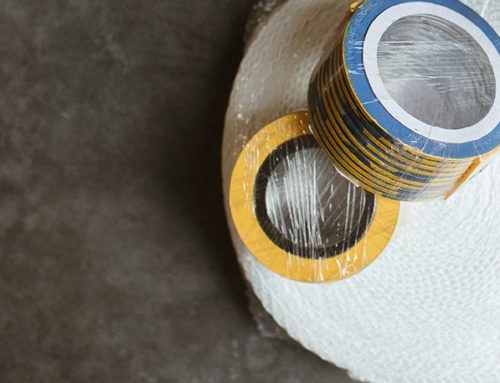The cost of leaks from industrial applications amounts to billions of dollars annually in lost production, energy waste, product loss, and environmental impact. Not surprisingly, effective fluid sealing solutions are a top priority.
Although seals and gaskets are both fluid sealing products, and the terms are often used interchangeably, they are not the same. Gaskets function as a static seal between components, flanges, joints, and other flat surfaces. On the other hand, O-rings and mechanical seals work in active environments such as engines, pumps, and rotating shafts.
Let’s explore how seals and gaskets are different and how they are used.
What is an Industrial Gasket?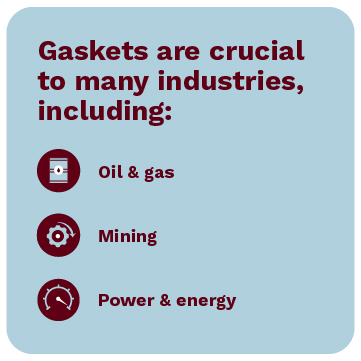
Fabricated using flexible materials, a gasket is flat and inserted at the intersection, or mating point, of two surfaces. Industrial gaskets for sealing purposes are used to prevent leakage from non-moving flanges, joints, and similar characters.
Gaskets are crucial to numerous manufacturing processes, which include:
- Chemical processing
- Engineering and construction
- Marine
- Mining
- Oil and gas
- Pharmaceutical
- Power generation
- Pulp and paper
- Water and wastewater
In most applications, gaskets are changed whenever the machinery or equipment is disassembled, before there is a chance for them to break or become worn.
5 Types of Gaskets
Gaskets are produced in many designs based on intended usage, physical parameters, chemical contact, and budget. These are just a few examples:
1) Sheet Rubber
Sheet rubber gaskets are punched out of sheeted material to produce an inexpensive gasket for environments containing acids, corrosive chemicals, mild caustics, or steam.
2) Solid Material
Solid material gaskets are metal. They can withstand much higher temperatures and pressures than many other gasket types.
3) Spiral-Wound
Spiral-wound gaskets have a metal component that winds outward, with filler material that winds from the opposite direction. The metal provides structural support, while the filler provides the seal.
4) Camprofile
Although expensive to produce, camprofile gaskets (also spelled kammprofile) are long-lasting. They tolerate very high compression and provide an extremely tight seal.
5) Flange
Flange gaskets are made to fit between two flared sections of pipe. They come in five different styles: sheet, ring, spiral wound, soft cut, and ring-type joint (RTJ).
Sealing Products Explained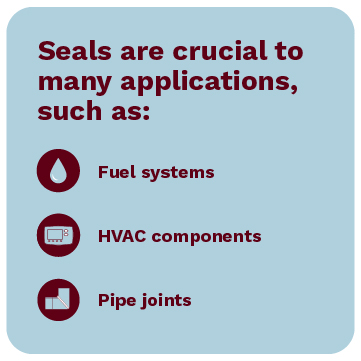
Seals differ from gaskets in that they are used in active environments such as engines, motors, rotary shafts, and pumps to prevent leaks between moving parts and, in the process, also prevent contamination. These high-pressure environments would cause most gaskets to fail after a short period of time.
Typical applications for seals include:
- Food processing equipment
- Fuel systems
- HVAC components
- Hydraulic applications
- Pipe joints
Unlike gaskets, replacing a damaged or broken seal can be complex. The entire assembly containing the seal must be taken apart.
O-Rings
Most industrial seals involve some variation on what is known as an O-ring. O-rings are placed into a groove to keep them in place and then compressed between two surfaces. Squeezing the O-ring creates a seal by filling the space and removing any opportunity for movement.
O-rings haven’t changed much since they were first introduced about 120 years ago. Some of the materials used to make O-rings are more high-tech now, but the product itself remains a very simple and straightforward fluid sealing solution.
A key strength of the O-ring is that it returns to its original shape after the parts it is joining are disconnected and the compression forces acting on it are taken away. This is a significant difference between gaskets and O-rings.
Mechanical Seals
Most mechanical seals are composed of two rings – a stationary ring on the pump housing and a rotary ring on the shaft. These rings rub against each other as the rotary ring rotates with the shaft. Leaks are minimized, and the axis does not wear because the separate rings provide a precise fit. Even under high pressure, high rotating speed, or when used with hazardous substances, mechanical seals prevent leaking.
Your Source For Comprehensive Fluid Sealing Solutions
Industries rely on NW Industrial Sales, LLC for their fluid sealing solution needs. Our comprehensive inventory ensures you will find precisely the fluid sealing product you need.
As agents of Rexnord’s Industrial Services division, NW Industrial Sales, LLC has access to a nationwide network for repair, remanufacturing, and predictive maintenance services.
Industry knowledge is the cornerstone of NW Industrial Sales, LLC. With over 75 years of combined experience, our specialists are available 24/7 to answer all of your questions, provide solutions, and deliver the finest products available.
Contact NW Industrial Sales, LLC to speak with a knowledgeable team member today.
